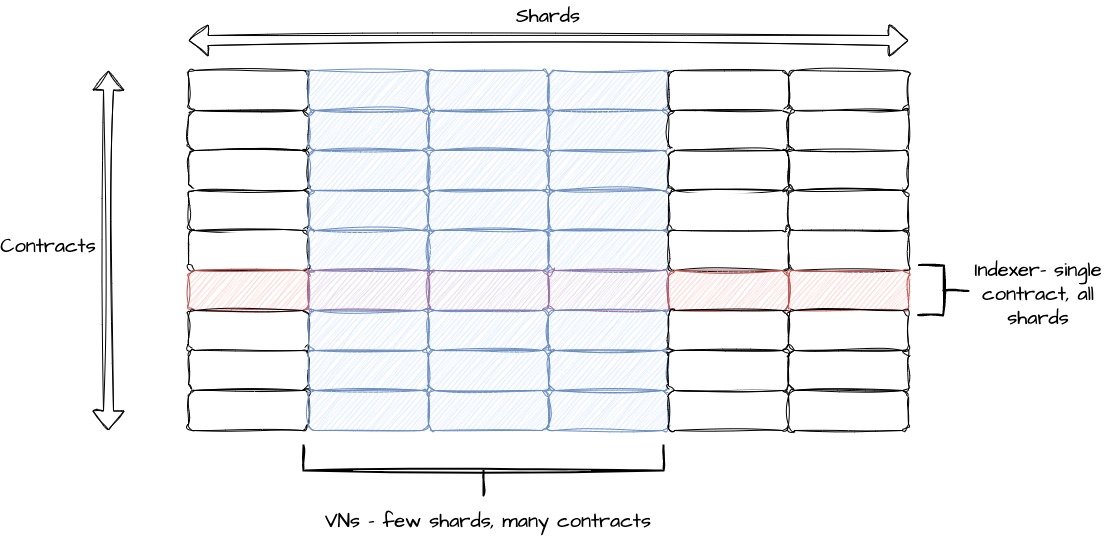RFC-0304/Consensus
The Tari Network Consensus Layer
Maintainer(s): stringhandler, Stanley Bondi
Licence
Copyright 2022 The Tari Development Community
Redistribution and use in source and binary forms, with or without modification, are permitted provided that the following conditions are met:
- Redistributions of this document must retain the above copyright notice, this list of conditions and the following disclaimer.
- Redistributions in binary form must reproduce the above copyright notice, this list of conditions and the following disclaimer in the documentation and/or other materials provided with the distribution.
- Neither the name of the copyright holder nor the names of its contributors may be used to endorse or promote products derived from this software without specific prior written permission.
THIS DOCUMENT IS PROVIDED BY THE COPYRIGHT HOLDERS AND CONTRIBUTORS "AS IS", AND ANY EXPRESS OR IMPLIED WARRANTIES, INCLUDING, BUT NOT LIMITED TO, THE IMPLIED WARRANTIES OF MERCHANTABILITY AND FITNESS FOR A PARTICULAR PURPOSE ARE DISCLAIMED. IN NO EVENT SHALL THE COPYRIGHT HOLDER OR CONTRIBUTORS BE LIABLE FOR ANY DIRECT, INDIRECT, INCIDENTAL, SPECIAL, EXEMPLARY OR CONSEQUENTIAL DAMAGES (INCLUDING, BUT NOT LIMITED TO, PROCUREMENT OF SUBSTITUTE GOODS OR SERVICES; LOSS OF USE, DATA OR PROFITS; OR BUSINESS INTERRUPTION) HOWEVER CAUSED AND ON ANY THEORY OF LIABILITY, WHETHER IN CONTRACT, STRICT LIABILITY OR TORT (INCLUDING NEGLIGENCE OR OTHERWISE) ARISING IN ANY WAY OUT OF THE USE OF THIS SOFTWARE, EVEN IF ADVISED OF THE POSSIBILITY OF SUCH DAMAGE.
Language
The keywords "MUST", "MUST NOT", "REQUIRED", "SHALL", "SHALL NOT", "SHOULD", "SHOULD NOT", "RECOMMENDED", "NOT RECOMMENDED", "MAY" and "OPTIONAL" in this document are to be interpreted as described in BCP 14 (covering RFC2119 and RFC8174) when, and only when, they appear in all capitals, as shown here.
Disclaimer
This document and its content are intended for information purposes only and may be subject to change or update without notice.
This document may include preliminary concepts that may or may not be in the process of being developed by the Tari community. The release of this document is intended solely for review and discussion by the community of the technological merits of the potential system outlined herein.
Goals
This Request for Comment (RFC) describes operation of Tari network Indexers. Indexers are a key actor in providing rapid, up-to-date and accurate information about the state of Tari contracts to client applications.
Related Requests for Comment
Introduction
Since the Tari network is designed to scale to hundreds of thousands of contracts, and millions of transactions per hours, having a global state tracking system, like Etherscan, is neither feasible nor advisable. Instead, client applications (wallets, ticket apps, exchange front-ends etc) will run an Indexer that follows the state of a finite set of contracts of interest all across the shard-space.
indexer_lib in the DAN source
code.
The indexer application has additional functionality (such as a copy of the Tari engine for executing dry runs of transactions) that is outside the domain of what the indexer is responsible for: maintaining a database of contract state, and delivering that state to client applications.
You can think of Validator nodes as staying in position and managing the state of a fixed set of addresses, possibly having to operate instructions for thousands of different contracts, while Indexers are constantly hopping around the shard-space, following the progress of a fixed set of contracts wherever their state goes.
Figure 1 illustrates this dynamic:

The indexer library work via three inter-oparting modules: substate scanning, substate decoding, and the substate cache.
Substate scanning
Given a substate address, the indexer will obtain the state for that substate, if it exists, using the following algorithm:
- If the substate is in the cache, retrieve the cached value. Query the network for the next version, and if it does not exist, return the cached version.
- If the cache misses, or the network indicates that the cache is stale because the next version does exist then:
- If the next substate version's state is
UP, update the cache and return the substate. - Otherwise, if the next substate version's state is
DOWN, query the network until the current version is found. - If the cache misses, and the network indicates that the substate does not exist, then the substate address is not valid.
- If the next substate version's state is
- After retrieving the latest version from the network, update the cache before returning the substate.
Substate decoding
The substate decoding module decodes the state at a given substate address, and collects any referenced substate addresses contained within. This is done recursively until all substates have been decoded.
This is the primary mechanism for discovering the state of a contract, and allowing it to solely track updates to the state of contracts the indexer is interested in. This is a key aspect of Tari's scalability. Without this, we would fall back into the trap of having a global state machine, which axiomatically, does not scale.
Substate cache
The substate cache reduces the amount of network traffic by storing the state of substates of interest. When a request for a substate is made, the cache is checked first. If the substate is not in the cache, the network is queried for the substate, potentially making many queries to find the latest version of the substate.
If the substate is in the cache, the cache may be checked to see if the substate is stale. Sometimes (e.g. for transaction dry runs), we may simply be optimistic and accept the cached value as the latest version.
For consensus, the approach is more conservative and the network is consulted to verify the freshness of the cached value.
The current implementation of the substate cache uses a local file-based cache and is highly performant and designed with concurrency in mind.
Change Log
| Date | Change | Author |
|---|---|---|
| 20 Dec 2023 | First draft | CjS77 |
| 23 Oct 2023 | Placeholder text | CjS77 |

